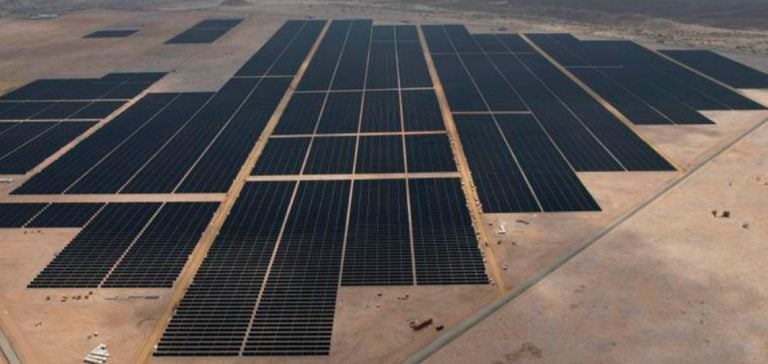Africa is on the brink of a major energy transformation, massively adopting renewable energy to meet the growing electricity demand of its 1.5 billion inhabitants. This transition aims not only to stimulate economic growth but also to diversify the continent’s energy mix, currently dominated by fossil fuels. With 60,000 MW of renewable energy already in service and 32,700 MW under construction, the main sources include solar, wind, geothermal, hydropower, and nuclear.
This rapid expansion of renewable infrastructure is likely to strengthen regional economic stability. By increasing renewable energy production capacity, Africa can foster industrialization, create jobs, and ensure a reliable electricity supply. Countries like Egypt, Kenya, and Ethiopia are at the forefront of this energy revolution. For instance, Egypt is making massive investments in solar and wind projects, while Kenya and Ethiopia are harnessing their vast geothermal resources.
Investment and Financing Landscape
The rise of renewable energy in Africa opens significant opportunities for international investors, development banks, and sovereign funds. However, financing these projects requires robust financial models to manage the political and economic risks inherent in the continent. Instruments such as blended financing, renewable bonds, and Power Purchase Agreements (PPAs) are crucial to attract private investments while ensuring the viability of projects.
Major financial institutions, such as the African Development Bank (AfDB), the World Bank, and the International Finance Corporation (IFC), play a crucial role. They provide direct funding and risk mitigation mechanisms, making projects more attractive to private investors. Blended financing, which combines public and private capital, helps reduce risks and mobilize the large-scale investments necessary for energy infrastructure.
Challenges to Overcome
Despite encouraging prospects, Africa faces several obstacles to successfully transition to renewable energy. Policy coordination and regulatory challenges are among the primary barriers. Many African countries lack a coherent regulatory framework for cross-border energy trade and the integration of renewable energies. Regional power pools, such as the Southern African Power Pool (SAPP) and the West African Power Pool (WAPP), attempt to promote cooperation but require significant improvements and policy alignment to manage the influx of renewable energies.
Furthermore, infrastructural deficiencies pose another major challenge. A significant portion of Africa’s energy infrastructure is outdated, with insufficient transmission networks to transport electricity across borders. For example, the construction of a 1,700 km transmission line in West Africa, linking Senegal, Gambia, Guinea, and Guinea-Bissau, is a step forward, but it is only the beginning. Modernizing transmission networks is essential to optimize the large-scale use of renewable energies.
Strategic Opportunities: Harnessing Technological Innovation
African energy companies have the opportunity to leapfrog traditional energy development stages by adopting cutting-edge technologies. Decentralized energy systems, such as microgrids and off-grid solutions, provide cost-effective alternatives to massive investments in centralized networks. Additionally, advances in energy storage and grid management allow for better integration of renewable energies, thereby reducing dependence on fossil fuels.
Digital platforms and data management also play a crucial role. The use of artificial intelligence (AI) and machine learning optimizes energy flows and predicts consumption patterns, ensuring efficient use of renewable energy and minimizing losses. These technologies enable more dynamic and responsive management of energy networks, essential for balancing supply and demand.
Regional Focus: Leading Markets
Regional dynamics in renewable energy in Africa reveal distinct leaders. In North Africa, Egypt stands out with its large-scale solar, wind, hydropower, and nuclear projects. Its strategic position and developed infrastructure make it a key player in the Mediterranean energy market, with significant export potential to Europe.
In East Africa, Kenya and Ethiopia lead in geothermal development, harnessing their natural resources to diversify their energy portfolios. Geothermal energy offers a stable baseload source, essential for balancing intermittent renewable energies like wind and solar.
In West Africa, Nigeria, the most populous nation on the continent, faces considerable energy needs and has an ambitious plan to integrate nuclear energy into its energy mix. However, political instability and a strong dependence on fossil fuels complicate the transition to renewable energy.
The success of these regional initiatives will depend on the countries’ ability to overcome structural challenges and optimize the opportunities offered by technological innovation and financial partnerships. The energy transition in Africa represents a major strategic opportunity for the continent. By adopting robust renewable energy policies and overcoming infrastructure and regulatory challenges, Africa can not only meet its growing energy needs but also become a key player in the global energy landscape. Collaboration between governments, financial institutions, and private investors will be essential to catalyze this transformation, paving the way for sustainable economic growth and a significant reduction in carbon footprint.






















